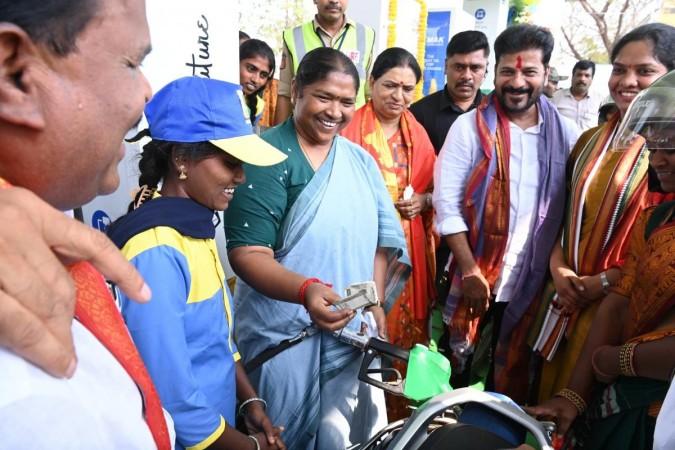
India's Prime Minister Narendra Modi's government's introduction of E20, an ethanol-blended fuel, has stirred up a wave of unease and uncertainty in the nation's auto industry, causing concern among both drivers and car manufacturers. This move, aimed at reducing oil imports and promoting sustainability, has raised questions about the impact of E20 on vehicles and the market dynamics.
E20, a petrol mixture containing 20% ethanol derived mainly from sugarcane, maize, and rice, was first launched at select fuel stations in April 2023. Since April 2025, it has progressively replaced the previously predominant E10 fuel across the country. However, recent scarcity of older fuel variants like E10 and E5 has left consumers with limited options, compelling them to opt for E20 as the sole available choice.
The Indian government asserts that E20 not only curtails oil imports, potentially saving $5 billion in foreign exchange this year, but also promises a substantial increase of nearly $4.6 billion in farmer incomes. Additionally, the environmentally friendly nature of E20 positions it as a less polluting alternative to traditional fuels.

Despite parallels with countries like Brazil and the United States, where ethanol-blended fuels are prevalent, India's exclusively E20 approach has triggered apprehension among motorists. Concerns range from worries about finding suitable fuel for older vehicles, which typically endorse E5 or E10 in user manuals, to uncertainties about the impact on engine performance.
In response to these anxieties, the government emphasizes that transitioning to E20 is imperative and guarantees that any required adaptations for older vehicles are straightforward. The auto industry has largely lent its support to this stance, even as concerns about decreased fuel efficiency of 2-4% under real-world conditions persist.
Amidst these challenges, key players in India's sugar and ethanol sectors, such as Bajaj Hindusthan Sugar, Balrampur Chini Mills, Shree Renuka Sugars, Praj Industries, and CIAN Agro, stand to benefit from increased demand for ethanol. Simultaneously, state-run oil marketing companies like Indian Oil Corporation, Bharat Petroleum Corporation, and Hindustan Petroleum Corp are expected to profit from reduced crude imports.
As India navigates the complexities of implementing E20 fuel nationwide, the auto industry's response and consumer adaptation will shape the future trajectory of the nation's transportation sector.

















